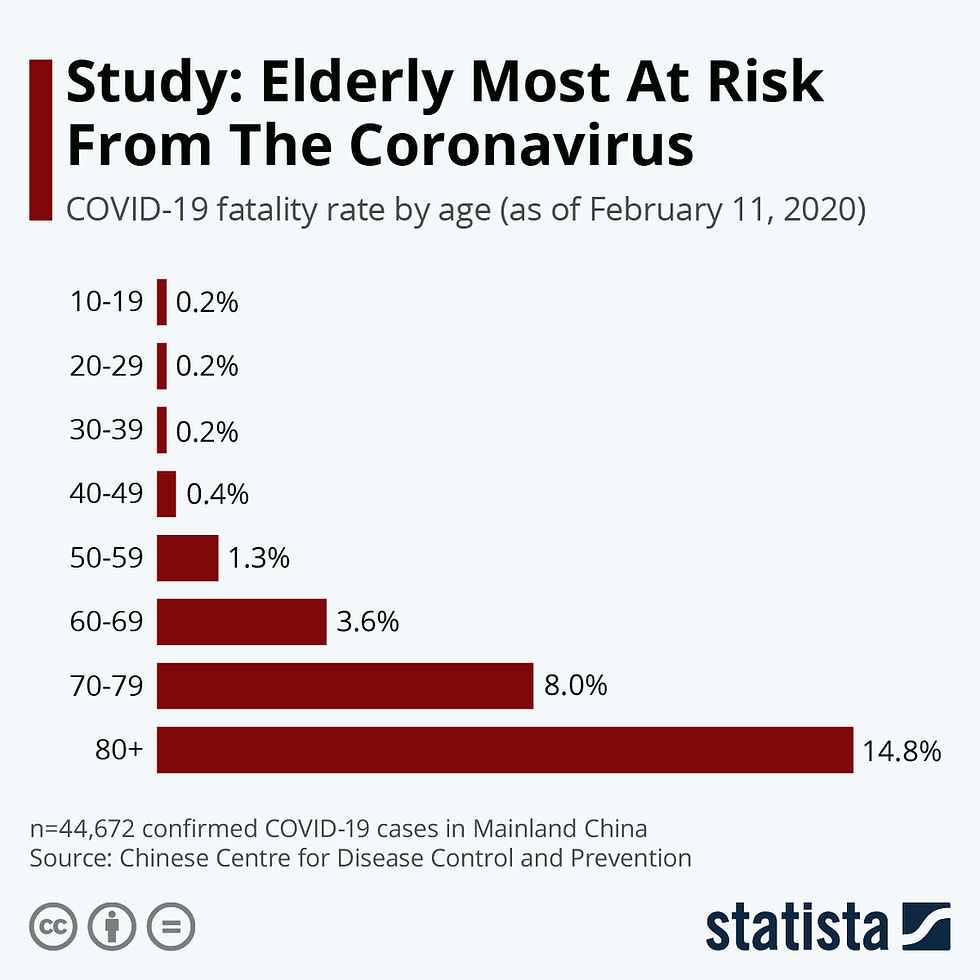
*The COVID-19 coronaviruses have spread to more than 80 countries around the world!
The World Health Organization (CDC) defines Coronoviruses (COV) as, "a large family of viruses ranging from the common cold to male severe diseases such as Middle East Respiratory Syndrome (MERS-Cov) and Severe Acute Respiratory Syndrome (SARS-Cov).
Coronavirus disease (COVID-19) is a new strain of coronavirus that was discovered in December 2019. It was not previously identified in humans. The strain appeared in Wuhan, China and early hypotheses have it linked to a "wet" or "open-air" wildlife and seafood market there. Officials are still tracing the exact sources of the new virus. A January 2020 study notes that the initial reported cases had no link to the market. This could mean that the virus had already began spreading before the first reported case. Coronaviruses are named for their appearance. The word corona is Latin for crown. When studied under a microscope, these viruses are covered with pointed structures which resemble crowns.The disease is a zoonotic virus. Having made the successful jump from animals to humans, the animal source is thought to be bats. Bats are host to a wide range of zoonotic viruses including Ebola, HIV, and rabies.

Chinese Scientists believe that COVID-19 has mutated into two strains; one far more aggressive than the other. This discovery could hinder development of effective vaccines. Worse still is that a new study shows it is possible to be infected with both strains. Scientists at Peking University School of Life Sciences and the Institut Pasteur of Shanghai discovered the two lineages and dubbed them the 'L' and 'S' types. The 'S' type is older and appears to be milder and less infectious.
HOW IS IT SPREAD?
As of today, there is no evidence yet that the disease is airborne. However, this can always change! Airborne viruses linger for longer periods and can be spread anywhere there is airflow; like air conditioning and ventilation. Current facts show that the disease can only be spread through close contact - defined as spending more than 15 minutes within two meters of an infected person.

*SYMPTOMS OF THE VIRUS ARE SHOWING IN PEOPLE AS EARLY AS 14 DAYS OF EXPOSURE.
COVID-19 Symptoms Include: COUGH, FEVER, and SHORTNESS OF BREATH. In rare cases, COVID-19 can lead to severe respiratory problems, kidney failure or death. If you experience any of these symptoms, call your doctor or healthcare provider and describe your symptoms before going to the doctor's office, urgent care facility or emergency room. Be sure to inform them if you have traveled out of the country in the last 14-21 days, particularly to countries affected by COVID-19!
PROTECT YOURSELF AND YOUR FAMILY
The Centers for Disease Control and Prevention (CDC) has these suggestions for protecting you and your family from COVID-19:
* Wash your hands frequently and thoroughly for at least 20 seconds. Use alcohol-based hand sanitizer if soap and water are not available.
* Cover coughs and sneezes with a tissue, then throw the tissue in the trash.
* Avoid touching your eyes, nose or mouth with unwashed hands.
* Stay home when you are sick and whenever going out is not necessary.
* Clean and disinfect surfaces and objects people frequently touch.
INFORMATION BECOMES POWER ONLY WHEN IT IS COUPLED WITH ACTION!






Comments